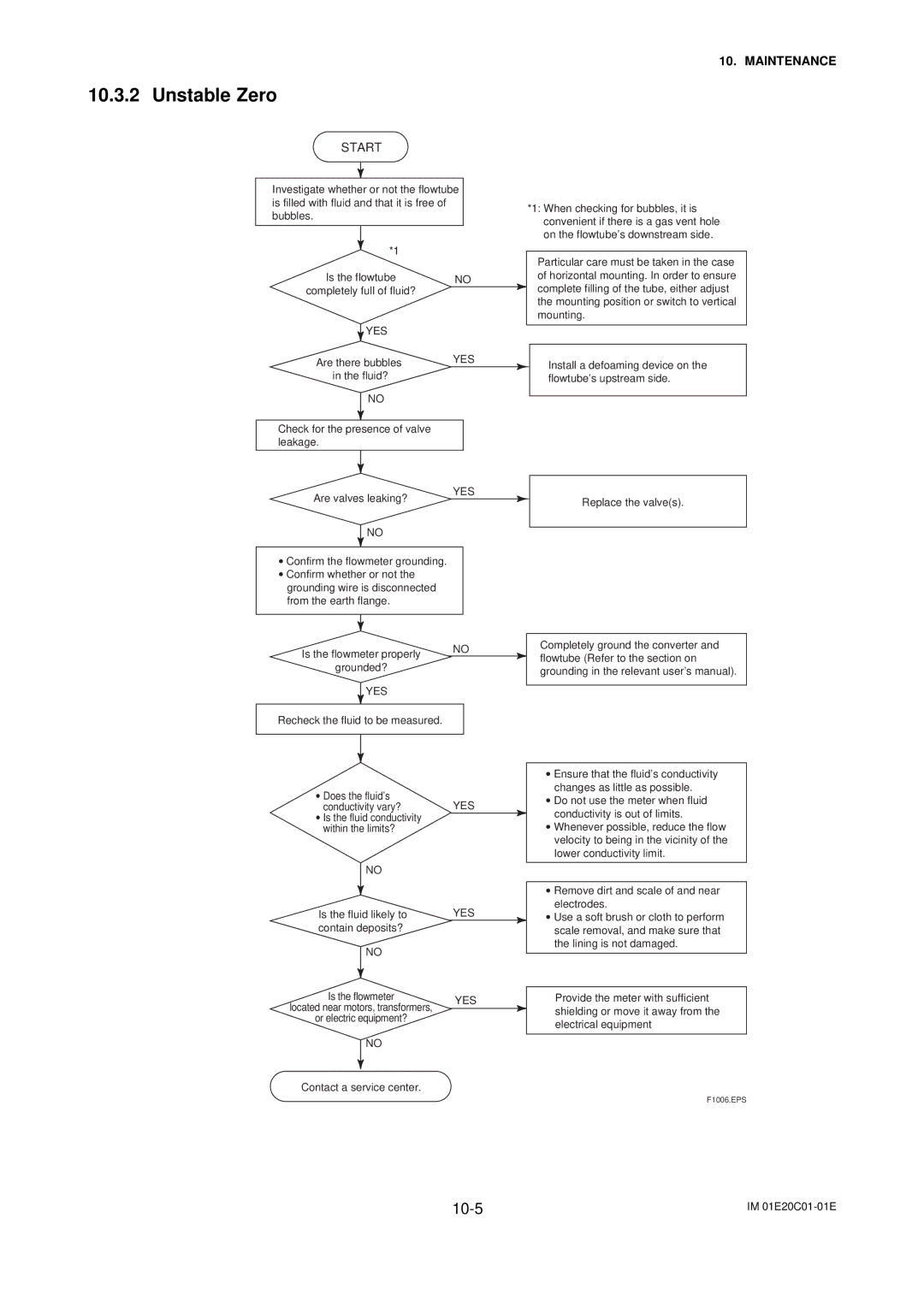
10.3.2 Unstable Zero
START
Investigate whether or not the flowtube is filled with fluid and that it is free of bubbles.
*1
Is the flowtube | NO |
completely full of fluid? |
|
YES |
|
Are there bubbles | YES |
in the fluid? |
|
NO
Check for the presence of valve
10. MAINTENANCE
*1: When checking for bubbles, it is convenient if there is a gas vent hole on the flowtube’s downstream side.
Particular care must be taken in the case of horizontal mounting. In order to ensure complete filling of the tube, either adjust the mounting position or switch to vertical mounting.
Install a defoaming device on the flowtube’s upstream side.
leakage.
Are valves leaking?
NO
YES
Replace the valve(s).
•Confirm the flowmeter grounding.
•Confirm whether or not the grounding wire is disconnected from the earth flange.
Is the flowmeter properly | NO |
| |
grounded? |
|
YES
Recheck the fluid to be measured.
• Does the fluid’s | YES | |
conductivity vary? | ||
• Is the fluid conductivity |
| |
within the limits? |
| |
NO |
| |
Is the fluid likely to | YES | |
contain deposits? |
| |
NO |
| |
Is the flowmeter | YES | |
located near motors, transformers, | ||
| ||
or electric equipment? |
| |
NO |
| |
Contact a service center. |
|
Completely ground the converter and flowtube (Refer to the section on grounding in the relevant user’s manual).
•Ensure that the fluid’s conductivity changes as little as possible.
•Do not use the meter when fluid
conductivity is out of limits.
•Whenever possible, reduce the flow velocity to being in the vicinity of the lower conductivity limit.
•Remove dirt and scale of and near
electrodes.
• Use a soft brush or cloth to perform scale removal, and make sure that the lining is not damaged.
Provide the meter with sufficient shielding or move it away from the electrical equipment
F1006.EPS
IM |
